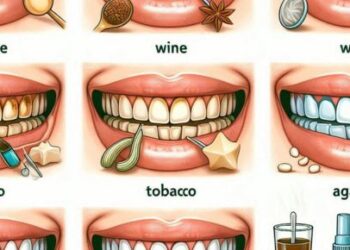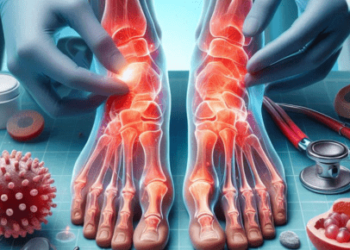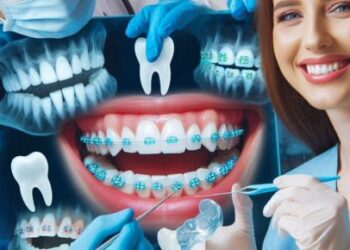Maintaining strong teeth is crucial for overall oral health and well-being. With these essential tips, you can strengthen your teeth and prevent dental problems for a lifetime of healthy smiles.

1.Brush Twice Daily: Proper Oral Hygiene
Brush your teeth twice a day, in the morning and before bed, using a fluoride toothpaste and a soft-bristled toothbrush. Proper brushing removes plaque and bacteria, preventing tooth decay and gum disease.
2.Floss Daily: Clean Between Your Teeth
Flossing daily is essential for removing plaque and food particles from between your teeth and along the gumline. Flossing helps prevent cavities and gum disease, keeping your teeth and gums healthy.
3.Use Fluoride Toothpaste: Strengthen Tooth Enamel
Choose a toothpaste that contains fluoride, a mineral that helps strengthen tooth enamel and prevent tooth decay. Fluoride toothpaste is essential for maintaining strong, cavity-free teeth.
4.Limit Sugary Foods and Drinks: Protect Tooth Enamel
Reduce your intake of sugary foods and drinks, which can contribute to tooth decay and enamel erosion. Limiting sugary treats helps protect your teeth and maintain optimal oral health.
5.Eat a Balanced Diet: Nourish Your Teeth
Eat a balanced diet rich in fruits, vegetables, lean proteins, and whole grains to provide essential nutrients for strong teeth and gums. Calcium, vitamin D, and phosphorus are particularly important for dental health.
6.Drink Water: Rinse Away Bacteria
Drink plenty of water throughout the day, especially after meals and snacks, to rinse away bacteria and neutralize acids in the mouth. Water helps keep your mouth hydrated and promotes saliva production, which aids in remineralizing tooth enamel.
7.Avoid Tobacco Products: Prevent Oral Cancer
Avoid using tobacco products, including cigarettes, cigars, and smokeless tobacco, which increase the risk of oral cancer, gum disease, and tooth loss. Quitting tobacco improves overall oral and general health.
8.Chew Sugar-Free Gum: Stimulate Saliva Production
Chew sugar-free gum between meals to stimulate saliva production, which helps neutralize acids, remineralize tooth enamel, and wash away food particles. Choose gum sweetened with xylitol for additional cavity-fighting benefits.
9.Visit Your Dentist Regularly: Maintain Oral Health
Schedule regular dental check-ups and cleanings with your dentist every six months to monitor your oral health and address any concerns promptly. Professional cleanings remove plaque and tartar buildup, reducing the risk of cavities and gum disease.
10.Consider Dental Sealants: Protect Molars
Ask your dentist about dental sealants, thin plastic coatings applied to the chewing surfaces of molars to protect against decay. Sealants are especially beneficial for children and teens, who are prone to cavities in these areas.
11.Wear a Mouthguard: Protect Your Teeth
Wear a mouthguard during sports and recreational activities to prevent dental injuries like broken or knocked-out teeth. Custom-fitted mouthguards offer the best protection and comfort.
12.Treat Tooth Grinding: Prevent Wear and Damage
If you grind your teeth at night, known as bruxism, talk to your dentist about treatment options to prevent wear and damage to your teeth. A custom night guard can protect your teeth while you sleep.
13.Practice Good Oral Habits: Start Early
Instill good oral habits in children from a young age by teaching them how to brush and floss properly and encouraging healthy eating habits. Early intervention sets the foundation for a lifetime of oral health.
14.Use Mouthwash: Rinse Away Bacteria
Incorporate an antimicrobial mouthwash into your oral hygiene routine to help reduce bacteria and plaque buildup, freshen breath, and promote healthy gums. Choose a mouthwash with fluoride for added cavity protection.
15.Limit Acidic Foods and Drinks: Protect Tooth Enamel
Limit your consumption of acidic foods and drinks, such as citrus fruits, sodas, and vinegar-based dressings, which can erode tooth enamel and increase the risk of cavities and sensitivity.
16.Practice Proper Brushing Technique: Clean Thoroughly
Brush your teeth using gentle, circular motions, angling the bristles towards the gumline to remove plaque and debris effectively. Take your time and brush for at least two minutes each time.
17.Rinse with Water After Meals: Reduce Acidity
After eating acidic or sugary foods, rinse your mouth with water to help neutralize acids and wash away food particles. This simple habit reduces acidity in the mouth and protects tooth enamel.
18.Use a Tongue Scraper: Remove Bacteria
Incorporate a tongue scraper into your oral hygiene routine to remove bacteria and food debris from the surface of your tongue. Tongue scraping helps freshen breath and improve overall oral hygiene.
19.Avoid Chewing Ice and Hard Objects: Prevent Tooth Fractures
Avoid chewing on ice, hard candies, or other hard objects that can damage tooth enamel and lead to fractures or chips. Protect your teeth from unnecessary wear and trauma.
20.Practice Stress Management: Reduce Teeth Grinding
Manage stress through relaxation techniques like deep breathing, meditation, or yoga to reduce teeth grinding and jaw clenching. Stress management helps preserve oral health and prevents tension-related dental problems.
21.Seek Treatment for Dental Issues Promptly: Prevent Complications
If you experience dental pain, sensitivity, or other issues, don’t delay seeking treatment from your dentist. Prompt intervention prevents minor problems from escalating into more serious dental complications.
22.Avoid Brushing Immediately After Acidic Foods: Protect Enamel
Wait at least 30 minutes after consuming acidic foods or drinks before brushing your teeth to avoid brushing away weakened enamel. Acidic substances temporarily soften enamel, making it more susceptible to damage.
23.Maintain Proper Hydration: Support Saliva Production
Stay properly hydrated throughout the day by drinking water regularly. Adequate hydration supports saliva production, which helps protect teeth against decay and maintains oral health.
24.Consider Dental Supplements: Support Oral Health
Discuss with your dentist the potential benefits of dental supplements like calcium, vitamin D, and probiotics for promoting strong teeth and gums. Supplements can complement a healthy diet and support overall oral health.
25.Stay Informed: Stay Up to Date on Oral Health
Stay informed about the latest developments in oral health and hygiene by reading reputable dental publications, attending seminars or webinars, and discussing any questions or concerns with your dentist. Knowledge empowers you to make informed decisions about your oral health.













